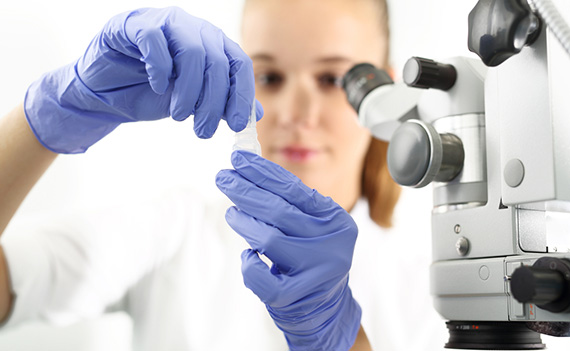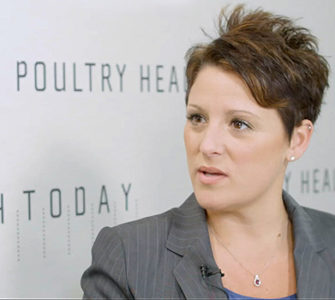Laboratory vs. clinical diagnosis: Which is needed for a VFD?
Part 2 in a series
In an exclusive 90-minute interview with editors from the VFD News Centers and Poultry Health Today, William Flynn, DVM, MS, deputy director for science and policy for FDA’s Center for Veterinary Medicine, clarified some hazy points of the new veterinary feed directive (VFD) regulations that took effect January 1, 2017. In this installment, Flynn discusses the type of veterinary diagnostics needed before issuing a VFD.
Q: Laboratory diagnosis increases costs for producers, and sometimes animals need to be treated before lab results can be obtained. With that in mind, is a laboratory diagnosis a prerequisite for the VFD? Or is a clinical diagnosis by a veterinarian acceptable?
WF: Diagnosis intersects with basic principles related to the practice of veterinary medicine. We understand that and aren’t intending to define specifically what those standards are. We look to the expertise of licensed veterinarians and the established standards of practice and, in some cases, the requirements or recommendations that may be established at the state level.
The VFD regulation, however, requires that for a VFD to be valid, there must be a veterinary-client-patient relationship (VCPR) — and that’s the area we’re most interested in. There has to be a legitimate relationship between the vet and client, which requires the veterinarian to have sufficient knowledge of animals that enables him to make a general or preliminary diagnosis.
We aren’t defining specifically what the vet would take into account to make that diagnosis, and we recognize it may include a variety of things — clinical signs, the history of the animal operation, lab testing, their basic professional expertise.
So, the short answer is “no.” The main issue is that the vet must be involved.
Q: Is there a specific way that FDA wants veterinarians to document a clinical diagnosis?
WF: The VFD regulations don’t define that specifically. From FDA’s standpoint, it’s our expectation there would be some medical records maintained regarding the decisions that veterinarians make involving dispensing products. But again, we’re looking to the standards of practice for veterinarians in terms of them maintaining sufficient records around the services they provide to clients and to the animals they’re treating.
Q: So, even though the VFD regulations don’t require specific records to justify issuing a VFD, would a site report or some other type of documentation summarizing the situation be good for veterinarians to have on hand?
WF: Yes. If for some reason we ask a veterinarian about involvement in a particular situation, I think certainly there would be an expectation that there’s some documentation showing that the veterinarian in fact does have a relationship with that operation — that the veterinarian has been providing services to a given operation and including information about their diagnosis and dispensing of products.
Even though we do not define specifically the kinds of records a veterinarian must keep, we would expect them to maintain some medical records around the services they’re providing to a given operation.
Q: So, in summary, a laboratory diagnosis is a nice thing to have when necessary or the schedule permits, but it is not a prerequisite for a VFD.
WF: Correct. As you said, it’s not a prerequisite and it’s really up to the clinical judgment of the veterinarian. There may be a number of other factors in addition to clinical signs they’re aware of in terms of a particular operation — what’s been experienced on that particular operation in the past, what they know about the animals and the source of the animals, and a whole number of other factors a veterinarian would take into account to determine the appropriate course of therapy for a group of animals.
Posted on December 22, 2016

















